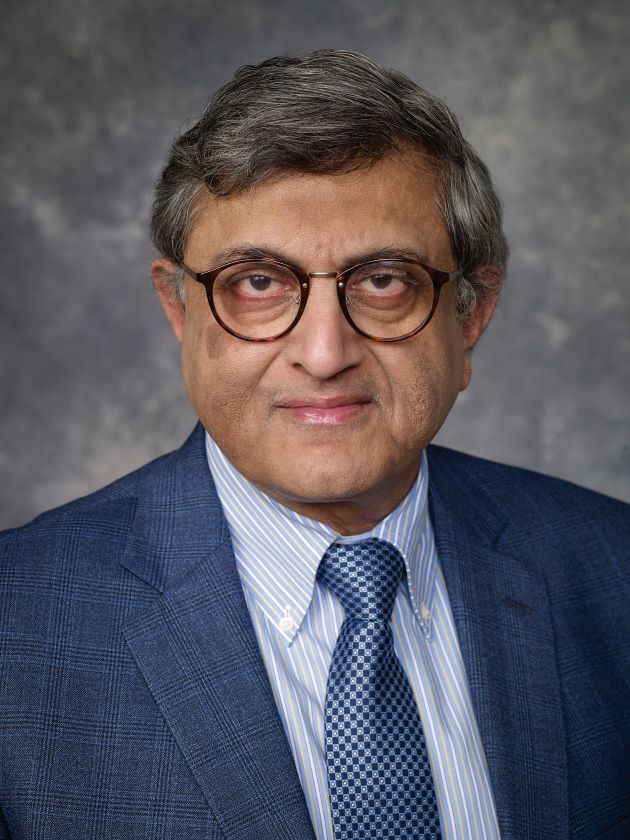Overconfident chief executive officers — such as household names Elon Musk, Jeff Bezos and Mark Zuckerberg — were targeted for research by two professors from the Naveen Jindal School of Management at The University of Texas at Dallas, and their findings were published recently in a top academic research journal.

The findings of Dr. Vikram Nanda and Dr. Steven Chong Xiao were recognized in an article published in Management Science, a top academic research journal. Their article, “Managerial Overconfidence and Market Feedback Effects,” was published in the December 2023 issue. Co-authors are Suman Banerjee of Stevens Institute of Technology and Shiyang Huang of the University of Hong Kong.
What do CEO have in common when it comes to business decisions? The researchers spent years studying how business and psychology intertwine within a company and what it means to those companies.
Their sample tracked Standard and Poor’s 1500 companies, examining the top executives’ compensation packages. Together the researchers studied managerial overconfidence and its consequences for a company’s shareholders, stakeholders, direction and outcomes. CEOs have a considerable influence in headlines, and the professors sought to understand and reveal a greatly confident CEO’s role in managing a company.
“Being a CEO takes a certain personality, a certain type of dedication,” said Nanda, O.P. Jindal Distinguished Chair and a professor in the Jindal School’s Finance and Managerial Economics Area. “Is your personality suited for hard work and stress? We saw a difference among managers.”
Looking at the CEOs’ relationship to the stock market was important in their results. Stock price declines might have nothing to do with a firm’s standing. That mispricing might be triggered by unrelated factors, such as investors needing to pull their money for reasons not related to a company’s strength. Many managers would take this price drop as a negative, adjusting their business strategies in a more conservative direction, said Xiao, an associate professor in the Finance and Managerial Economics Area in the Jindal School and the Area Coordinator for the PhD in Management Science, finance concentration.
In contrast, an overconfident CEO, he said, often believes the price drop has nothing to do with the business’ fundamentals. Different personalities react in diverse ways. An average CEO, by reacting in a conservative manner, might lead the business to decline, while the overconfident manager is not influenced by a price drop.

“They have confidence in their own view, ignore the external signals and forge ahead,” Xiao said. “And that can be a good thing.”
Among their findings is that overconfident managers are less responsive to stock prices because of their strong opinions of their own leadership abilities. This results in the CEOs maintaining their investment policies for their business, regardless of stock price activities. Consequently, company stocks led by overconfident CEOs are less susceptible to stock price movement.
To define who the overconfident CEO is, the researchers developed media measures and examined how CEOs exercised their stock options, relative to other CEOs. Many CEOs, who have much of their wealth tied to company stock, sell them quickly, according to Nanda, yet the overconfident CEOs tend to take years to do so.
“In some sense, they’re doubling down on their risk taking,” Nanda said. “These chaps are so confident that the company is going to do well that they hold on to their shares of their company, even if they are not required to do so. They hang on to their shares and ignore the market.”
CEOs who appear overconfident often are prized for that trait, Nanda said.
“Over time they’ve been successful, and they’ve been rewarded for it,” he said. “Some are lucky, and they’ve been rewarded for it.”
Xiao said he sees advantages and disadvantages in a company hiring an overconfident CEO. Hiring managers and investors might pay attention.
“Some level of confidence is necessary to help the firm sustain through difficult times, such as market turmoil,” Xiao said. “They have the confidence to keep moving forward.
“As an investor, what I would do is I would invest in a company managed by someone with a strong, confident personality, but I would diversify my investments.”
The two JSOM professors boast distinguished careers in academia. Xiao received his PhD in 2014 from the Georgia Institute of Technology. He also holds a bachelor’s degree in finance and operations management from the Hong Kong University of Science and Technology and a master’s degree in quantitative and computational finance from the Georgia Institute of Technology.
Xiao’s research interests are in corporate finance and urban economics. He has published extensively in top academic journals such as the Review of Financial Studies, Journal of Financial Economics, Management Science, Journal of Financial and Quantitative Analysis, Review of Finance, Real Estate Economics, Journal of Business Ethics, Journal of Corporate Finance, and the Review of Corporate Finance Studies. His research has been presented at numerous academic conferences such as the American Finance Association, European Finance Association, the SFS Finance Cavalcade, and the Financial Intermediation Research Society.
Nanda holds a PhD in finance from the University of Chicago. He earned his master’s degree from Yale University and his bachelor’s degree in technology from the Indian Institute of Technology Kanpur.
He has focused much of his research on corporate finance and financial institutions, with special focus on attributes and performance of financial institutions. Nanda has served often on committees for the Western Finance Association, the European Finance Association and the Financial Intermediation Research Society. He also has had scholarly articles published in The Journal of Finance, The Review of Financial Studies and the Journal of Financial Economics. His work on multimarket trading received the best paper award at a symposium sponsored by the Western Finance Association, Review of Financial Studies and the New York Stock Exchange. Twice his articles at The Journal of Finance have been nominated for the Smith Breeden prize, and the Q-Group has twice recognized him for his work on hedge funds. He has previously studied the role of overconfidence in CEOs.
The scholarly journal Management Science publishes scientific research on management theories and practices. The journal includes studies on business strategy, entrepreneurship, innovation, technology, accounting, finance, information systems, marketing and operations. Christoph H. Loch serves as its editor-in-chief.






